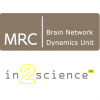Dysfunctional cerebellar Purkinje cells contribute to autism-like behaviour in Shank2-deficient mice.
Loss-of-function mutations in the gene encoding the postsynaptic scaffolding protein SHANK2 are a highly penetrant cause of autism spectrum disorders (ASD) involving cerebellum-related motor problems. Recent studies have implicated cerebellar pathology in the aetiology of ASD. Here we evaluate the possibility that cerebellar Purkinje cells (PCs) represent a critical locus of ASD-like pathophysiology in mice lacking Shank2. Absence of Shank2 impairs both PC intrinsic plasticity and induction of long-term potentiation at the parallel fibre to PC synapse. Moreover, inhibitory input onto PCs is significantly enhanced, most prominently in the posterior lobe where simple spike (SS) regularity is most affected. Using PC-specific Shank2 knockouts, we replicate alterations of SS regularity in vivo and establish cerebellar dependence of ASD-like behavioural phenotypes in motor learning and social interaction. These data highlight the importance of Shank2 for PC function, and support a model by which cerebellar pathology is prominent in certain forms of ASD.

